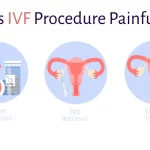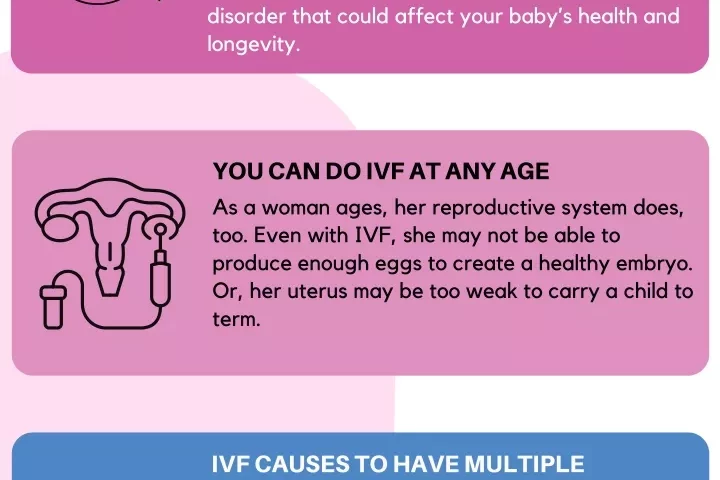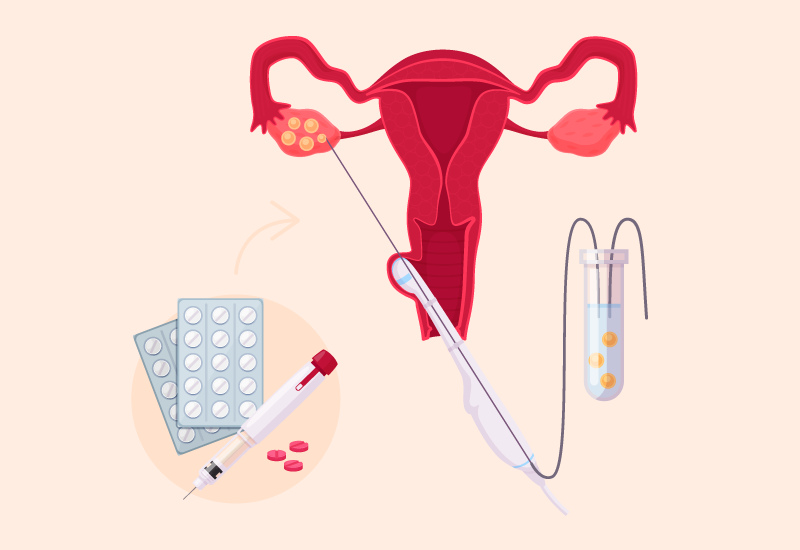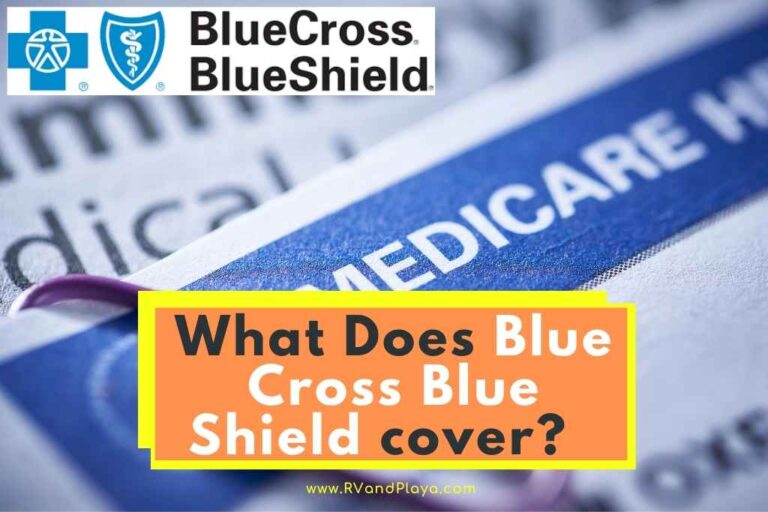
Is IVF Painful? Your Complete Guide to Understanding the Process
April 12, 2025Does Trump Want to Ban IVF? Unpacking the Debate
April 13, 2025Does IVF Cause Cancer? Unpacking the Facts, Myths, and Latest Research
When you’re thinking about starting a family through in vitro fertilization (IVF), it’s natural to have questions—and maybe even some worries. One big question that pops up a lot is whether IVF could increase your risk of cancer. It’s a heavy topic, and with so much info floating around online, it can feel overwhelming to sort out what’s true. Maybe you’ve heard whispers about fertility drugs messing with your hormones or stories about cancer risks for moms or even babies born through IVF. Don’t worry—I’ve got you covered. This article dives deep into the science, clears up the confusion, and gives you the latest scoop so you can feel confident about your choices.
IVF is a lifeline for millions of people struggling with infertility, but it’s also a process that involves hormones, medical procedures, and a lot of emotions. So, let’s break it all down together—step by step—and figure out what the real deal is with IVF and cancer. We’ll look at the research, talk about what’s changed in 2025, and even explore some angles you might not have thought about yet. Ready? Let’s get started.
What Is IVF, Anyway?
IVF stands for in vitro fertilization, a process where doctors help create a baby outside the body before placing it in the womb. It’s like giving nature a little nudge. Here’s how it works in simple terms: doctors give you medications to boost your ovaries into making more eggs, then they collect those eggs, mix them with sperm in a lab, and grow the tiny embryos for a few days. After that, one (or sometimes more) of those embryos gets transferred back into your uterus, hoping it’ll stick and grow into a baby.
The medications—like clomiphene citrate or gonadotropins—are a big part of it because they kick your hormones into high gear. And since hormones like estrogen and progesterone can play a role in some cancers (think breast or ovarian), people started wondering if all this extra hormone action could cause trouble down the road. It’s a fair question, and one researchers have been digging into for years.
The Big Worry: Does IVF Increase Cancer Risk for Women?
When you hear “IVF” and “cancer” in the same sentence, it’s usually about women who go through the treatment. The idea is that pumping your body with hormones might somehow trigger cancer—especially in places like the breasts, ovaries, or uterus, which are sensitive to hormonal changes. But what does the science actually say? Let’s look at the main areas people worry about.
Breast Cancer: Hormones and Hype
Breast cancer is the most common cancer among women, so it’s no surprise it’s a hot topic here. IVF drugs raise estrogen and progesterone levels for a short time, and some breast cancers love feeding off those hormones. So, could IVF be a risk factor?
The good news: most studies say no. A huge study from the Netherlands, following over 25,000 women for more than 20 years, found that IVF doesn’t increase breast cancer risk compared to women who didn’t do IVF but still had fertility issues. Another big one from 2016 in JAMA tracked women for decades and saw no uptick in breast cancer rates. Even better? A 2023 update from the National Cancer Institute (NCI) looked at newer IVF techniques—like milder hormone doses—and found the same thing: no clear link.
But here’s a twist that doesn’t get talked about enough: age matters. Women over 40 starting IVF might already have a higher baseline risk for breast cancer just because of their age, not the treatment. A 2021 study in Israel noticed a slight bump in breast cancer cases for women over 40 who did IVF, but it wasn’t statistically strong enough to blame IVF itself. So, it’s more about where you’re at in life than the fertility drugs.
What You Can Do:
- ✔️ Get regular breast checkups, especially if you’re over 35—IVF or not.
- ❌ Don’t skip mammograms just because you’re busy with fertility stuff.
- ✔️ Talk to your doctor about your personal risk factors, like family history.
Ovarian Cancer: The Ovulation Connection
Ovarian cancer is rarer but scarier because it’s often caught late. Since IVF stimulates your ovaries to pop out more eggs, some folks wonder if that extra action could damage ovarian tissue and lead to cancer. There’s even a theory called “incessant ovulation,” which says the more your ovaries ovulate, the higher your risk.
Here’s what we know: early studies—like one from the 1990s—hinted at a possible link, especially with drugs like clomiphene. But bigger, better research since then has calmed those fears. A 2022 study from Norway, tracking women who did IVF in the 1980s and ‘90s, found no significant increase in ovarian cancer compared to the general population. The NCI’s 2020 follow-up study agreed, showing that any small risk bump might be tied to infertility itself—not IVF.
One cool detail? Women who get pregnant through IVF might actually lower their ovarian cancer risk a bit because pregnancy pauses ovulation. A 2024 analysis in Fertility and Sterility suggested this protective effect could balance out any theoretical risk from the drugs. It’s not a guarantee, but it’s a silver lining worth noting.
Quick Check-In: How Do You Feel About This?
Take a second—do you feel reassured or still a little unsure about ovarian cancer and IVF? Drop your thoughts in a quick poll:
- A) Totally relieved—science rocks!
- B) Still curious, need more info.
- C) Kinda worried, let’s keep digging.
Your vibe helps me know what to focus on next!
Uterine Cancer: A Lesser-Known Concern
Uterine (or endometrial) cancer doesn’t get as much attention in the IVF convo, but it’s worth a look since the uterus is where the embryo lands. High estrogen without progesterone can thicken the uterine lining, which might raise cancer risk over time. IVF uses both hormones, though, so it’s not the same as unopposed estrogen (like in some hormone replacement therapies).
The data here is super reassuring. A 2019 study in Human Reproduction followed over 250,000 women who did IVF in the UK and found no increase in uterine cancer rates, even after 10+ years. A 2023 Danish study backed this up, showing that women who used fertility drugs had the same risk as those who didn’t. If anything, infertility conditions like endometriosis might nudge the risk up slightly—not the IVF process.
Practical Tip: If you’ve got irregular periods or a history of uterine issues, chat with your doc before IVF. It’s all about knowing your body.
What About the Kids? Cancer Risk in IVF Babies
Okay, so we’ve covered moms—but what about the babies born through IVF? This is a question that’s been buzzing lately, especially with posts on X in 2025 claiming IVF kids might face higher cancer risks. Let’s unpack this.
The Research Scoop
A massive 2019 study in JAMA Pediatrics looked at over 275,000 IVF kids in the US and compared them to millions of naturally conceived kids. The result? IVF kids had a slightly higher cancer rate—about 17% more cases per million kids. That sounds alarming, but the actual numbers are tiny: think 1 extra case per 1,000 IVF babies. The most common were liver tumors and leukemias, but even those were rare.
Here’s the catch: researchers couldn’t pin it on IVF itself. It might be tied to infertility factors in parents—like genetic quirks—or even preterm birth, which is more common in IVF pregnancies. A 2024 update from the University of Minnesota dug deeper and found no link to specific IVF techniques (like freezing embryos), suggesting it’s not the lab process causing this.
A Fresh Angle: Epigenetics
One thing not talked about enough? Epigenetics—how genes get turned on or off. IVF happens in a dish, not the body, so some scientists wonder if that tweaks how genes behave in embryos. A 2023 study in Nature Communications found small epigenetic changes in IVF embryos, but nothing clearly tied to cancer yet. It’s a hot research area for 2025, and we’ll likely hear more soon.
Parent Tip:
- ✔️ Keep up with your kid’s regular checkups—cancer or not, early detection is key.
- ❌ Don’t panic over every little symptom; rare risks are still rare.
Why the Confusion? Myths vs. Facts
With all this research, why do people still freak out about IVF and cancer? Let’s bust some myths wide open.
Myth #1: Fertility Drugs Are Cancer Bombs
Nope. The hormone spikes in IVF are short-term—weeks, not years. Compare that to hormone replacement therapy, which can go on for decades and does have a stronger cancer link. A 2022 meta-analysis of 25 studies found no breast cancer spike from fertility drugs, even after 20 years.
Myth #2: IVF Kids Are Doomed
Not true. That 17% bump in cancer risk sounds big, but it’s a relative number. The absolute risk is still super low—way less than 1%. Plus, kids born through IVF are just as healthy overall as their peers, per a 2024 CDC report.
Myth #3: More IVF Cycles = More Risk
You’d think piling on the cycles would up your odds, but data says otherwise. A 2021 UK study found no cancer risk increase even after 6+ cycles. Your body seems to handle it just fine.
Fun Fact: Did you know IVF’s been around since 1978? That’s over 45 years of data showing it’s safer than a lot of people think!
What’s New in 2025? Fresh Research and Trends
Since it’s April 2025, let’s catch up on what’s hot off the press. Research is moving fast, and some cool stuff is popping up.
Milder Protocols, Same Results
Doctors are tweaking IVF to use lower hormone doses—called “mild stimulation.” A 2024 trial in The Lancet showed these gentler cycles still get you pregnant without blasting your system. Early data hints this could lower any theoretical cancer risk even more—stay tuned for long-term results.
Cancer Screening Boost
Another trend? Fertility clinics are teaming up with cancer experts. A 2025 pilot program in California offers free breast and ovarian cancer screenings for IVF patients over 35. It’s not because IVF’s risky—it’s just smart to double-check, especially if you’ve got infertility red flags like PCOS.
X Buzz: What People Are Saying
On X, folks are chatting about IVF and cancer more than ever. A March 2025 thread went viral with claims about “IVF mutations,” but experts jumped in to debunk it with studies like the JAMA one. The vibe? People want reassurance—and they’re getting it from science, not rumors.
Digging Deeper: 3 Things You Haven’t Heard Enough About
Most articles stick to the basics, but let’s go beyond that. Here are three angles that deserve more spotlight.
1. Infertility Itself Might Be the Culprit
Here’s a mind-bender: what if it’s not IVF but the reason you need it? Conditions like endometriosis or PCOS already nudge up cancer risks a bit—think 1-2% higher for ovarian cancer, per the NCI. A 2023 Swedish study split IVF patients by infertility cause and found those with endometriosis had a slightly higher cancer rate, IVF or not. So, the treatment might just be along for the ride.
Takeaway: Ask your doc to break down your infertility diagnosis—it could tell you more about your risks than IVF itself.
2. Mental Health and Cancer Risk
This one’s wild: stress from infertility and IVF might indirectly affect cancer risk. Chronic stress messes with your immune system, and a 2024 Psychoneuroendocrinology study linked high stress in IVF patients to inflammation markers tied to cancer. It’s not direct proof, but it’s a clue we’re just starting to explore.
Self-Care Checklist:
- ✔️ Try yoga or meditation during IVF—it’s not just woo-woo; it lowers stress hormones.
- ❌ Don’t bottle up your feelings; talk to a friend or therapist.
- ✔️ Get enough sleep—your body needs it to fight stress.
3. Long-Term Follow-Up Is Still Young
IVF’s only been mainstream for a few decades, so we’re still catching up on super long-term data. Most studies follow women for 20-30 years, but what about 50? A 2025 initiative from the NIH is launching a 50-year IVF cohort study—think thousands of women tracked into their 80s. It’s early days, but it’ll answer questions we don’t even know to ask yet.
Pro Tip: If you’re doing IVF now, sign up for long-term studies—you’ll help future generations!
So, Should You Worry? A Simple Breakdown
After all this, where do we land? Here’s the bottom line in plain English:
- For Women: IVF doesn’t seem to cause breast, ovarian, or uterine cancer based on decades of data. Your personal risk factors—like age or infertility type—matter more than the treatment.
- For Kids: There’s a tiny uptick in cancer risk, but it’s so small it’s not worth losing sleep over. It’s likely tied to infertility or birth issues, not IVF itself.
- The Future: Newer, gentler IVF methods and better screening are making things even safer.
Quick Quiz: What’s Your Takeaway?
- IVF’s totally safe, no worries at all—true or false?
- The biggest cancer risk might be from infertility, not IVF—yes or no?
- Kids from IVF have a huge cancer risk—fact or fiction?
(Answers: 1. Mostly true, 2. Yes, 3. Fiction—scroll up if you’re stumped!)
Real Talk: A Mom’s Story
Let’s bring this home with a story. Meet Sarah, a 38-year-old from Oregon who did IVF in 2022. She was terrified about cancer risks after reading old headlines, but her doctor walked her through the latest studies—like the JAMA one—and she felt better. Two cycles later, she had twins, and three years in, she’s cancer-free and loving life. “I wish I’d known how solid the research was,” she says. “It would’ve saved me so much stress.”
Sarah’s not alone—millions of women have done IVF since the ‘70s, and the vast majority are thriving. It’s not a perfect process, but cancer? It’s not the boogeyman it’s made out to be.
Your Next Steps: Making Peace with IVF
If you’re on the fence about IVF, here’s how to move forward with confidence:
- Chat with Your Doctor: Bring up cancer worries—they’ve got the latest info and can tailor it to you.
- Know Your Body: Get a baseline health check before IVF—think mammogram, pelvic ultrasound, the works.
- Stay in the Loop: Follow up with your clinic post-IVF for regular screenings. It’s not about IVF; it’s about being proactive.
- Chill Out: Stress won’t help—find ways to relax during the process, like a good book or a walk.
Bonus Tip: Join an IVF support group online—real stories from real people can ease your mind way more than Google ever will.
Wrapping It Up: You’ve Got This
So, does IVF cause cancer? The short answer is no—not according to the mountain of research we’ve got in 2025. For women, the data’s clear: IVF doesn’t spark breast, ovarian, or uterine cancer. For kids, the risk is a whisper, not a shout, and it’s likely not even about IVF itself. New trends—like milder treatments and better screening—are making it even safer, and science is still digging to double-check every angle.
You’re not just a number in a study—you’re a person with dreams of a family. Armed with the facts, you can step into IVF with your eyes wide open, not clouded by fear. It’s your journey, and the science says you’re on solid ground. What do you think—feeling ready to take the next step?



